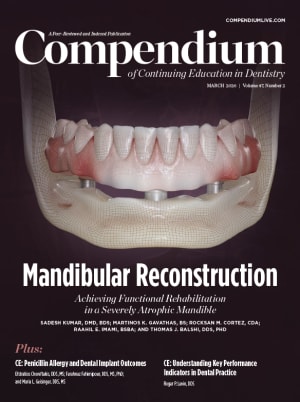Developing Men and Women of Science
Charles N. Bertolami, DDS, DMedSc
In 2007, New York University College of Dentistry (NYUCD) convened a task force to develop a new strategic plan to chart the way forward for the college. The task force identified five themes as guideposts for NYUCD’s future. One of these themes—essentially a mandate—is to develop men and women of science.
Not every graduate needs to become a scientist, in the sense of becoming a producer of new knowledge. However, a learned profession does require that all graduates be able to think for themselves, and be intelligent users of research, able to critique it, and comfortable with the structure and syntax of modern biomedical science. Only through this process can graduates immunize themselves against fads, junk science, unsubstantiated conjecture, and the pervasive, self-declared claim of excellence so characteristic of our times.
Indeed, while less than 1% of dental students will become researchers, a foundational attribute for dentists as members of a learned profession must be sheer intellectual curiosity—a trait as important for the clinician as for the scientist. This is the kind of curiosity that drives all scientific inquiry and is, at its root, identical to the kind of curiosity that underlies clinical practice at its best, assuming that the vehicle for clinical practice is a learned profession, as opposed to a trade or a craft.
A priority for NYUCD, therefore, is to educate all students to become men and women of science, or, to quote Anthony M. Iacopino, DMD, PhD, to become “sophisticated consumers of research” who continually seek and incorporate evidence-based philosophies into their practices; are competent to understand and critically evaluate published research findings; and appropriately utilize their findings to promote quality clinical outcomes.
To nurture this attribute, research must be part of the daily fabric of the dental education process and must be continually reinforced and utilized in classrooms, clinics, and associated activities, creating an environment that encourages both faculty and students to monitor and embrace the latest science.
The methods that NYUCD uses to achieve this goal include strengthening the school’s vibrant research programs, including translational and clinical research; revising its didactic, pre-clinical, and clinical curricula to further promote critical thinking through interactive teaching and learning and to support evidence-based practice and lifelong learning skills; prioritizing evidence-based practice as the central component of the school’s faculty development program; and exposing as many students as possible to research through a high-quality, hands-on experience.
Another key objective on behalf of this goal is the continual strengthening of NYU’s dentistry/nursing alliance, which was forged in 2005 when NYU’s nursing program became a College of Nursing within the NYU College of Dentistry. The philosophy driving this alliance is the belief that collaboration within and between healthcare disciplines in resolving clinical dilemmas will help to alleviate the pervasive access-to-care problem in the United States. To this end, NYU dental and nursing students are involved in collaborative health promotion studies and strategies that are providing greater access to care for the underserved. Through this alliance, students are getting something more from their education, and the experience of working together will likely increase both their intellectual rigor and their appreciation for one another’s disciplinary expertise and for the advantages of collaboration.
In short, NYUCD is committed to stimulating intellectual curiosity in its students in the service of scholarship, leading, in turn, to scholarship in the service of individual human beings, and, ultimately, to scholarship in the service of humanity. An education colored by research is one way of achieving this goal. The key is cultivating in students a taste for complexity, for problems, and for problem solving.
Without exception, all dental schools need to help students acquire this taste. In doing so, they will generate a few scientists, but what’s more important is they will enable every graduate to become a man or woman of science. Only by becoming a person of science is there any hope that the practitioner will be able to acquire and assimilate new knowledge and adapt to the changes in practice and in the profession that the future requires and the public demands.
About the Author
Charles N. Bertolami, DDS, DMedSc
Herman Robert Fox Dean
New York University College of Dentistry
New York, New York
